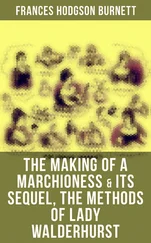Erckmann-Chatrian - Waterloo - A sequel to The Conscript of 1813
Здесь есть возможность читать онлайн «Erckmann-Chatrian - Waterloo - A sequel to The Conscript of 1813» — ознакомительный отрывок электронной книги совершенно бесплатно, а после прочтения отрывка купить полную версию. В некоторых случаях можно слушать аудио, скачать через торрент в формате fb2 и присутствует краткое содержание. Жанр: foreign_antique, foreign_prose, Историческая проза, на английском языке. Описание произведения, (предисловие) а так же отзывы посетителей доступны на портале библиотеки ЛибКат.
- Название:Waterloo: A sequel to The Conscript of 1813
- Автор:
- Жанр:
- Год:неизвестен
- ISBN:нет данных
- Рейтинг книги:5 / 5. Голосов: 1
-
Избранное:Добавить в избранное
- Отзывы:
-
Ваша оценка:
- 100
- 1
- 2
- 3
- 4
- 5
Waterloo: A sequel to The Conscript of 1813: краткое содержание, описание и аннотация
Предлагаем к чтению аннотацию, описание, краткое содержание или предисловие (зависит от того, что написал сам автор книги «Waterloo: A sequel to The Conscript of 1813»). Если вы не нашли необходимую информацию о книге — напишите в комментариях, мы постараемся отыскать её.
Waterloo: A sequel to The Conscript of 1813 — читать онлайн ознакомительный отрывок
Ниже представлен текст книги, разбитый по страницам. Система сохранения места последней прочитанной страницы, позволяет с удобством читать онлайн бесплатно книгу «Waterloo: A sequel to The Conscript of 1813», без необходимости каждый раз заново искать на чём Вы остановились. Поставьте закладку, и сможете в любой момент перейти на страницу, на которой закончили чтение.
Интервал:
Закладка:
I saw that he was growing sad, so I filled his glass and we drank, and his melancholy vanished. Catherine came back and said, "the grandmother was very happy, and that she thanked Mr. Goulden, and said it had been a beautiful day for her." And this roused everybody. As the dinner continued, Aunt Grédel heard the bells for vespers, and she went out to church, but Catherine remained, and the animation which good wine inspires had come, and we began to speak of the last campaign; of the retreat from the Rhine to Paris, of the fighting of the battalion at Bibelskirchen and at Saarbruck, where Lieutenant Baubin swam the Saar when it was freezing as hard as stone, to destroy some boats which were still in the hands of the enemy; of the passage at Narbefontaine, at Courcelles, at Metz, at Enzelvin, and at Champion and Verdun, and, still retreating, the battle of Brienne. The men were nearly all destroyed, but on the 4th of February the battalion was re-formed from the remnant of the 5th light infantry, and from that moment they were every day under fire; on the 5th, 6th, and 7th at Méry-sur-Seine; on the 8th at Sézanne, where the soldiers died in the mud, not having strength enough to get out; the 9th and 10th at Mürs, where Zébédé was buried at night in the dung-heap of a farmhouse in order to get warm, and the terrible battle of Marché on the 11th, in which the Commandant Philippe was wounded by a bayonet-thrust; the encounter on the 12th and 13th at Montmirail, the battle of Beauchamp on the 14th, the retreat on Montmirail on the 15th and 16th, when the Prussians returned: the combats at the Ferté-Gauché, at Jouarre, at Gué-à-Train, at Neufchettes, and so on. When the Prussians were beaten, then came the Russians, after them the Austrians, the Bavarians, the Wurtemburgers, the Hessians, the Saxons, and the Badois.
I have often heard that campaign described, but never as it was done by Zébédé. As he talked his great thin face quivered and his long nose turned down over the four hairs of his yellow mustache, and his eyes would flash and he would stretch out his hand from his old sleeve and you could see what he was describing. The great plains of Champagne with the smoking villages to the right and to the left, where the women, children, and old men were wandering about in groups, half naked, one carrying a miserable old mattress, another with a few pieces of furniture on his cart, while the snow was falling from the sky, and the cannon roared in the distance, and the Cossacks were flying about like the wind with kitchen utensils and even old clocks hanging to their saddles, shouting hurrah!
Furious battles were raging, singly, or one against ten, in which the desperate peasants joined also with their scythes. At night the Emperor might be seen sitting astride his chair, with his chin resting in his folded hands on the back, before a little fire with his generals around him. This was the way he slept and dreamed. He must have had terrible reflections after the days of Marengo, Austerlitz, and Wagram.
To fight the enemy, to suffer hunger and cold and fatigue, to march and countermarch, Zébédé said, were nothing, but to hear the women and children weeping and groaning in French in the midst of their ruined homes, to know you could not help them, and that the more enemies you killed, the more would you have; that you must retreat, always retreat, in spite of victories, in spite of courage, in spite of everything! "that is what breaks your heart, Mr. Goulden."
In listening and looking at him we had lost all inclination to drink, and Father Goulden, with his great head bent down as if thinking, said in a low voice:
"Yes, that is what glory costs, it is not enough to lose our liberty, not enough to lose the rights gained at such a cost, we must be pillaged, sacked, burned, cut to pieces by Cossacks, we must see what has not been seen for centuries, a horde of brigands making law for us – but go on, we are listening, tell us all."
Catherine, seeing how sad we were, filled the glasses.
"Come," said she, "to the health of Mr. Goulden and Father Zébédé. All these misfortunes are past and will never return."
We drank, and Zébédé related how it had been necessary to fill up the battalion again, on the route to Soissons, with the soldiers of the 16th light infantry, and how they arrived at Meaux where the plague was raging, although it was winter, in the hospital of Piété, in consequence of the great numbers of wounded who could not be cared for.
That was horrible, but the worst of all was when he described their arrival at Paris, at the Barrière de Charenton: the Empress, King Joseph, the King of Rome, the ministers, the new princes and dukes, and all the great world, were running away toward Blois, and abandoning the capital to the enemy, while the workingmen in blouses, who gained nothing from the Empire, but to be forced to give their children to defend it, were gathered around the town-house by thousands, begging for arms to defend the honor of France; and the Old Guard repulsed them with the bayonet!
At this Father Goulden exclaimed:
"That is enough, Zébédé, hold! stop there, and let us talk of something else."
He had suddenly grown very pale; at this moment Mother Grédel returned from vespers, and seeing us all so quiet, and Mr. Goulden so disturbed, asked:
"What has happened?"
"We were speaking of the Empress and of the ministers of the Emperor," replied Father Goulden, forcing a laugh.
Said she, "I am not astonished that the wine turns against you. Every time I think of them, if by accident I look in the glass, I see that it turns me quite livid. The beggars! fortunately, they are gone."
Zébédé did not like this. Mr. Goulden observed it and said, "Well! France is a great and glorious country all the same. If the new nobles are worth no more than the old ones, the people are firm. They work in vain against them. The bourgeois, the artisan, and the peasant are united, they have the same interests and will not give up what they have gained, nor let them again put their feet on their necks. Now, friends, let us go and take the air, it is late, and Madame Grédel and Catherine have a long way to go to Quatre Vents. Joseph will go with them."
"No," said Catherine, "Joseph must stay with his friend to-day, and we will go home alone."
"Very well! so be it! on a day like this friends should be together," said Mr. Goulden.
We went out arm in arm, it was dark, and after embracing Catherine again at the Place d'Armes she and her aunt took their way home, and after having taken a few turns under the great lindens we went to the "Wild Man" and refreshed ourselves with some glasses of foaming beer. Mr. Goulden described the siege, the attack at Pernette, the sorties at Bigelberg, at the barracks above, and the bombardment. It was then that I learned for the first time that he had been captain of a gun, and that it was he who had first thought of breaking up the melting-pots in the foundry to make shot. These stories occupied us till after ten o'clock. At last Zébédé left us to go to the barracks, the old grave-digger went to the rue Capucin, and we to our beds, where we slept till eight o'clock the next morning.
VII
Two days afterward I was married to Catherine at Aunt Grédel's at Quatre Vents. Mr. Goulden represented my father. Zébédé was my best man, and some old comrades remaining from the battalion were also at the wedding. The next day we were installed in our two little rooms over the workshop at Father Goulden's, Catherine and I. Many years have rolled away since then! Mr. Goulden, Aunt Grédel, and the old comrades have all passed away, and Catherine's hair is as white as snow! Yet often, even now, when I look at her, those times come back again, and I see her as she was at twenty, fresh and rosy, I see her arrange the flower-pots in the chamber-window, I hear her singing to herself, I see the sun opposite, and then we descend the steep little staircase and say together, as we go into the workshop: "Good-morning, Mr. Goulden;" he turns, smiles, and answers, "Good-morning, my children, good-morning!" Then he kisses Catherine and she commences to sweep and rub the furniture and prepare the soup, while we examine the work we have to do during the day.
Читать дальшеИнтервал:
Закладка:
Похожие книги на «Waterloo: A sequel to The Conscript of 1813»
Представляем Вашему вниманию похожие книги на «Waterloo: A sequel to The Conscript of 1813» списком для выбора. Мы отобрали схожую по названию и смыслу литературу в надежде предоставить читателям больше вариантов отыскать новые, интересные, ещё непрочитанные произведения.
Обсуждение, отзывы о книге «Waterloo: A sequel to The Conscript of 1813» и просто собственные мнения читателей. Оставьте ваши комментарии, напишите, что Вы думаете о произведении, его смысле или главных героях. Укажите что конкретно понравилось, а что нет, и почему Вы так считаете.











